UNDP YEMEN: FACING THE CLIMATE CRISIS IN YEMEN: SUSTAINABLE DEVELOPMENT IN ACTION

--
For nearly a decade, Yemen has struggled with protracted crises, touching nearly every aspect of life in the country, from food production to the stability of household incomes.
As Yemenis continue to navigate daily challenges, the effects of today’s actions on future generations must also be considered. Yemen is one of the most vulnerable countries in the world to climate change, yet there is growing awareness that actions must be taken to preserve the environment and reduce related risks.
Climate change mitigation is a key area that UNDP is focused on, with various projects and programmes to combat climate change and help support environmental conservation across the whole of Yemen. These interventions are in line with the theme for World Environment Day 2024:
“Our land. Our future. We are #GenerationRestoration.”
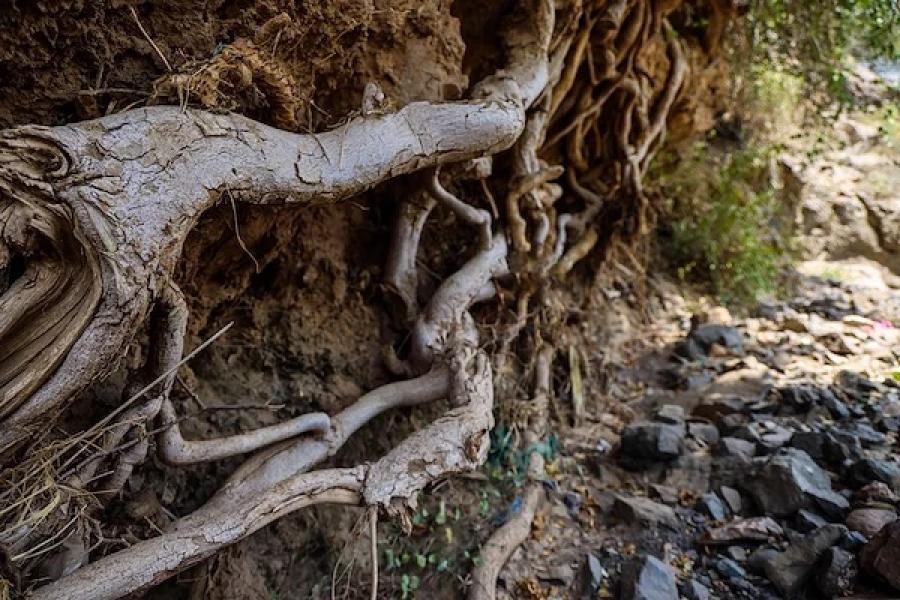
UNDERSTANDING THE CHALLENGES
In 2023, UNDP Yemen commissioned the study The Impact of Climate Change on Human Development in Yemen to better understand the challenges and risks facing the environment, and as a result, humankind, in Yemen.
The study, released in December 2023, identified crucial needs, and introduced effective interventions, to reduce the risks of climate change in Yemen, helping to protect the environment for generations to come.
The report presented several findings and projections that illustrate the possible scenarios that will be inevitable if action against climate change is not taken.
In the long run, climate change in Yemen will adversely affect the health and nutrition of the population with climate change being responsible for over 121,000 deaths by 2060.
Projections estimate that a cumulative figure of $93 billion in gross domestic product (GDP) will be lost through 2060 if there is no action taken against climate change in Yemen.
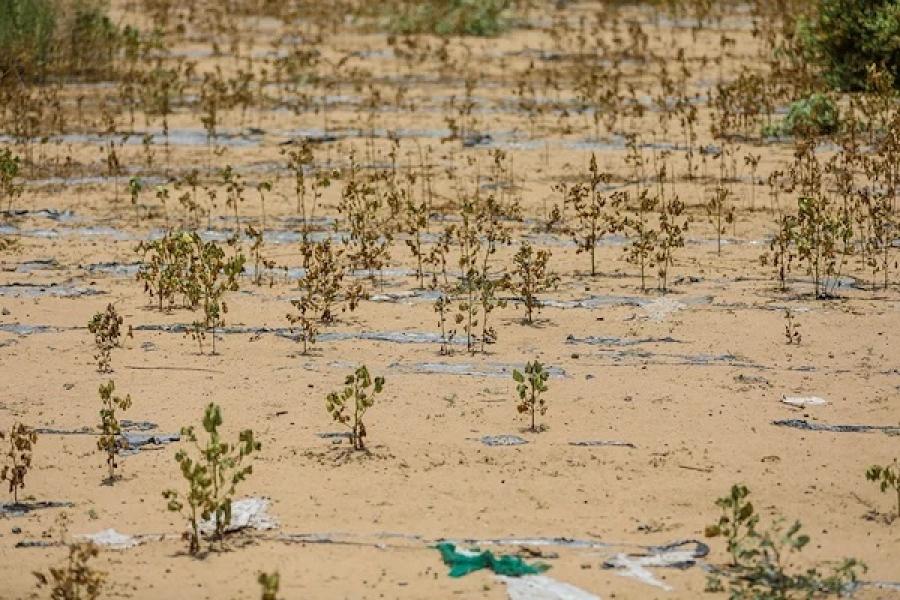
FARMING AND AGRICULTURAL LANDS
Climate change has affected many areas across Yemen, and most notably excessive flooding in recent years is creating tremendous challenges for farmers.
UNDP Yemen’s Strengthening Institutional and Economic Resilience in Yemen (SIERY) Project was able to provide a total of 32 rainwater tanks in Al-Haymah, Al-Kharijiha and Manakaha.
While our Emergency Social Protection Enhancement and COVID-19 Response Project (ESPECRP) has rehabilitated more than 56.6 kilometres of water supply.
Our Food Security Response and Resilience Project (FSRRP) constructed and improved over 20 kilometres of irrigation canals, and the irrigation of nearly 5,300 hectares of agricultural lands. The project provides support to restore degraded agricultural land, improving water resource management, and promoting climate-smart agricultural practices. Interventions are combating climate change and environmental degradation together with enhancing food security in the country, ultimately restoring nearly 4,000 hectares of farmlands.
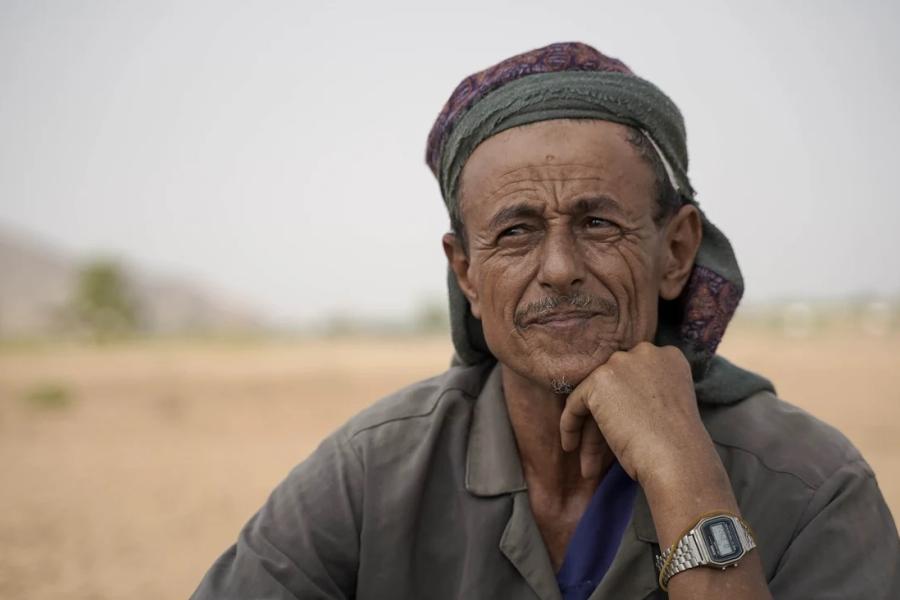
“This project is holding the promise of restoring access to water, reigniting our motivation as farmers and enabling us to earn a living once more,” says Hamoud Al-Nehari, a 61-year-old farmer, describing FSRRP’s rehabilitation of the Kubbat Al-Ashraf irrigation canal in Dhamar Governorate.
UNDP Yemen’s Supporting Resilient Livelihoods, Food Security, and Climate Adaptation in Yemen (ERRY III) Joint Programme has restored 4.3 kilometres of irrigation channels, facilitating proper water distribution for farming activities. It has also restored 23 hectares of agricultural land across seven areas, focusing on land protection and reclamation.
SPOTLIGHT ON HENNA PRODUCTION
In Ghail Bawazir, Hadhramout, agriculture is a vital sector for many communities.
Climate change risks have affected various farmlands and are challenging farmers’ abilities to grow their crops. Henna is a popular product that is being produced in the area, with generations harvesting this crop for decades.
Al- Maya’aen is a traditional method of irrigation canals that is being used by the area farmers to water their henna crops and is considered the only source of irrigation water in Ghail Bawazir.
Through our SIERY Project, old canals have been rehabilitated to enable the farmers’ access to irrigation water, revitalizing the irrigation system and sustainable land management practices.
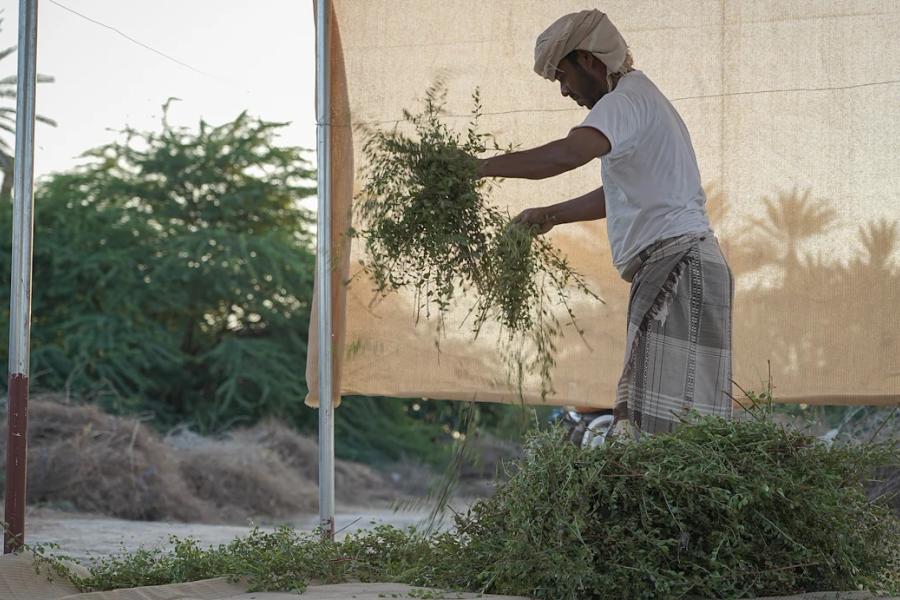
“Agriculture has been an instrumental sector for generations, and the particular interest in henna encouraged us to work closely on this important project. For a number of reasons, the henna sector has tremendous potential to expand and provide job opportunities for various sectors across the district,” - Salem Al-Ataishi Bawazir, Manager of Ghail Bawazeer District.
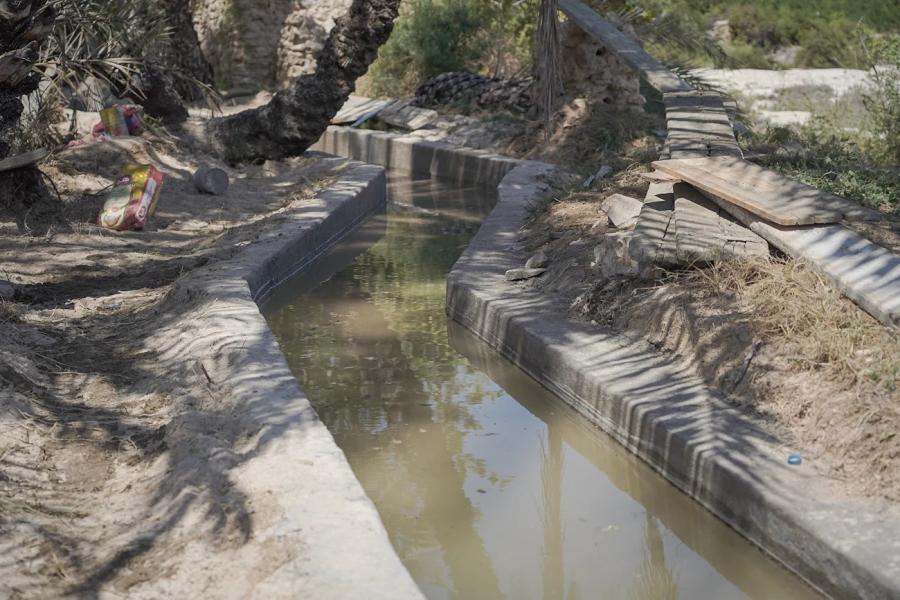
RENEWABLE ENERGY
Many households and businesses in Yemen do not have access to reliable electricity sources, facing numerous blackouts each day.
In 2024, UNDP Yemen published a summary of the Yemen Mixed-Renewable Energy Investment Plan, highlighting and projecting the potential demand to identify critical energy requirements and technical capacity gaps. The document includes a comprehensive plan for renewable energy in Yemen, with detailed objectives and goals covering a wide range of interventions and projects that will enhance the energy sector in Yemen and allow for better and more efficient renewable energy supply.
The plan combines a detailed assessment of the energy sector in Yemen with forecasting potential short- and long-term projections. It was found that the total investments needed for short-term pilot projects is $392.5 million USD.
Currently, UNDP Yemen’s Renewable Energy Improve Access to Health Services and Livelihood Opportunities (HEAL) Project is installing solar energy systems in four hospitals in Yemen, providing sustainable solutions to the electricity shortages that effect the operational ability of the country’s healthcare system.
"A solar energy system is crucial for the hospital's operations; without a reliable power source, our work is severely hampered as generators would stop due to diesel fuel shortages," explains Sadiq Al-Jaadbi, a 33-year-old laboratory technician at 26th September Hospital in Sana’a Governorate. "In the absence of electricity, patients' health could deteriorate, leading to complications. Therefore, solar energy systems not only contribute to reducing fuel consumption costs but also alleviate patients' suffering.”
In addition to healthcare, UNDP is also supporting Yemen’s education sector, with solar power in schools in various areas.
The SIERY Project has rehabilitated 79 schools, equipping them with solar energy systems for an enhanced learning and teaching experience.
“We noticed a decline in dropout rates and increased motivation and attitude among our students since the installation of a solar power system in this school.” – Hala Wahdeen, Headmistress of Khawla Bint Al-Azwar Secondary and Primary School, one of the schools that have been supported with installation of solar power systems across Hadhramaut.
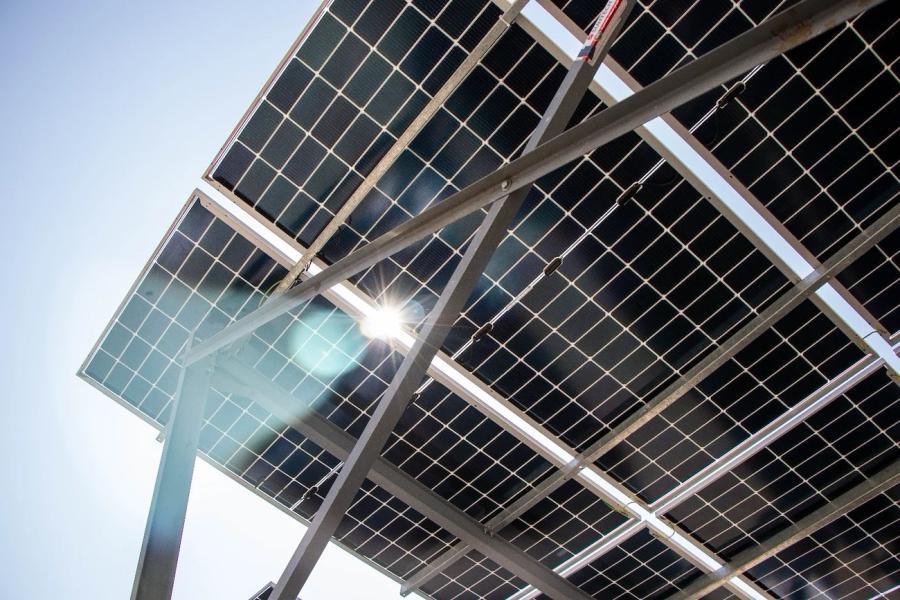
A focus on public service facilities is key for service provision, and the ERRY Joint Programme is supporting sustainable agricultural practices with renewable energy solutions. Through the project, solar energy systems have been installed in 39 public service facilities to enhance basic services.
"By harnessing renewable energy and implementing sustainable agricultural practices, we are not only preserving our environment, but also empowering our community for a resilient future." - Fawzyah Abdullah, 49 years old, speaks about a hybrid electric energy project in Al Shamayteen District, Taiz.

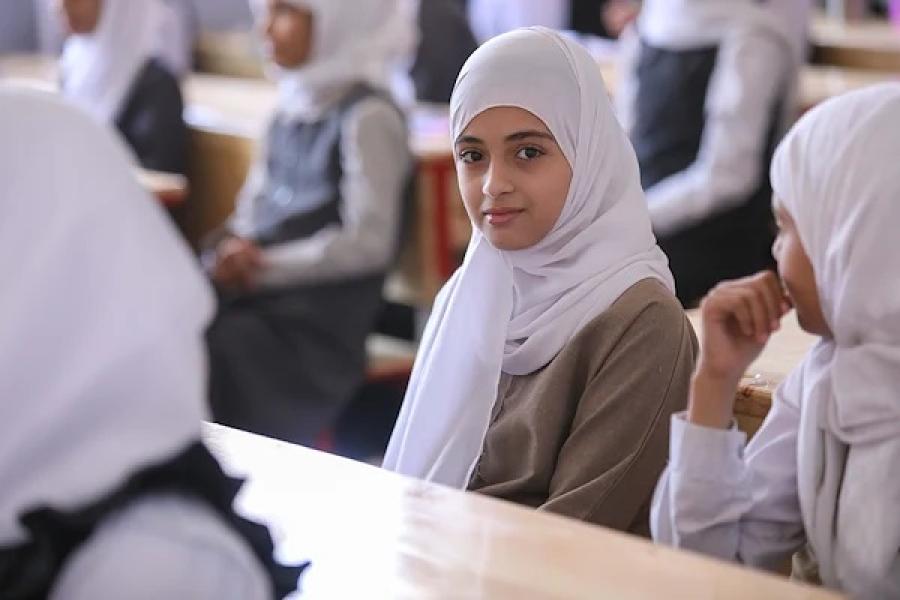
IMPROVING SANITATION AND ACCESS TO WATER
In some areas of Yemen, lack of access to water and sanitation is considered a never-ending daily struggle, affecting both the health and dignity of many households.
Our ESPECRP Project was able to support over 72,500 individuals with access to improved sanitation services to reduce water-borne diseases exacerbated by climate change.
UNDP Yemen is also working to transform water resource management into an inclusive participatory and reconciliatory process. This is achieved through the Enhancing Resilience through Sustainable Water Resource Management Project, which focuses on engaging across various communities, including with vulnerable groups, to address demands for water, ultimately turning water resources into a driver for social cohesion and stabilization.
The project works on enhancing the capacities of local water institutions and user associations to manage water resources in an inclusive, participatory, and transparent way to ensure that the environmental impact of using the water resources is reduced to a minimum.
Sustaining water infrastructure is an integral aim for sustainable agriculture and food security in Yemen. Through our Integrated Water Resources Management to Enhance the Resilience of Agriculture and Food Security Project, we enhance the livelihood resilience of local communities in Yemen through investing in water harvesting infrastructure and rehabilitating damaged community wells, canals, and flood protection areas, among other structures. The project also seeks to alleviate poverty by creating additional income generating opportunities achieved by initiating small value add activities to agricultural products such as fruits and vegetables, milk products, edible oil seeds, milled rice, flour, tea, coffee, pulses, spices, honey, as well as enhancing equitable market accessibility to local communities.
Implemented in four districts of Taiz and Lahj governorates, the project includes active involvement of community members in decision-making and contributes to increased livelihoods related to agriculture, benefitting over 70,000 individuals, including women, Internally Displaced Persons, and small holder farmers.
PRESERVING OUR MARINE ENVIRONMENT
Yemen’s coastline spans nearly 2,000 km, with fish providing both sustenance and livelihood support for many fisherfolk.
UNDP Yemen’s Sustainable Fishery Development in Red Sea and Gulf of Aden (SFISH) Project collaborates with local partners, fishery cooperatives, and the private sector to revive and effectively manage Yemen's fisheries sector. SFISH addresses overexploitation and unsustainable fishing practices, ensuring equitable access to resources and benefits. By fostering resilient marine environments, SFISH supports sustainable livelihoods, especially for vulnerable communities, women, and youth.
Through the project, eco-friendly cold chain systems powered by renewable energy are being developed and fish landing centers will be rehabilitated, including Aden's main fishing port. These efforts address post-harvest losses, ensure fish quality, and adhere to high environmental and social protection standards.
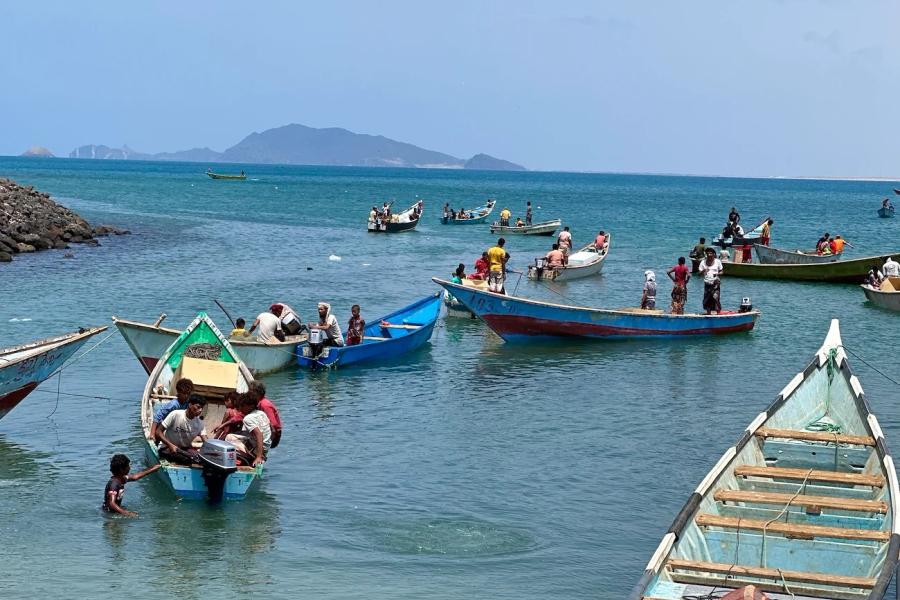
Working together, we can manage fisheries to preserve biodiversity, optimize economic value, and protect the environment.
Through UNDP Yemen’s new Strategic Direction, focus on climate, water, energy and the environment has never been stronger with regards to sustainable economic development in Yemen.
Together with our national partners and support and funding from the World Bank’s International Development Association, Germany, the European Union, the Government of Sweden, the Kuwait Fund, and the Global Environment Facility, respectively, the initiatives above are responding to Yemen’s pressing need to mitigate the effects of climate change and consider and protect the environment. Together, we will make a difference.

